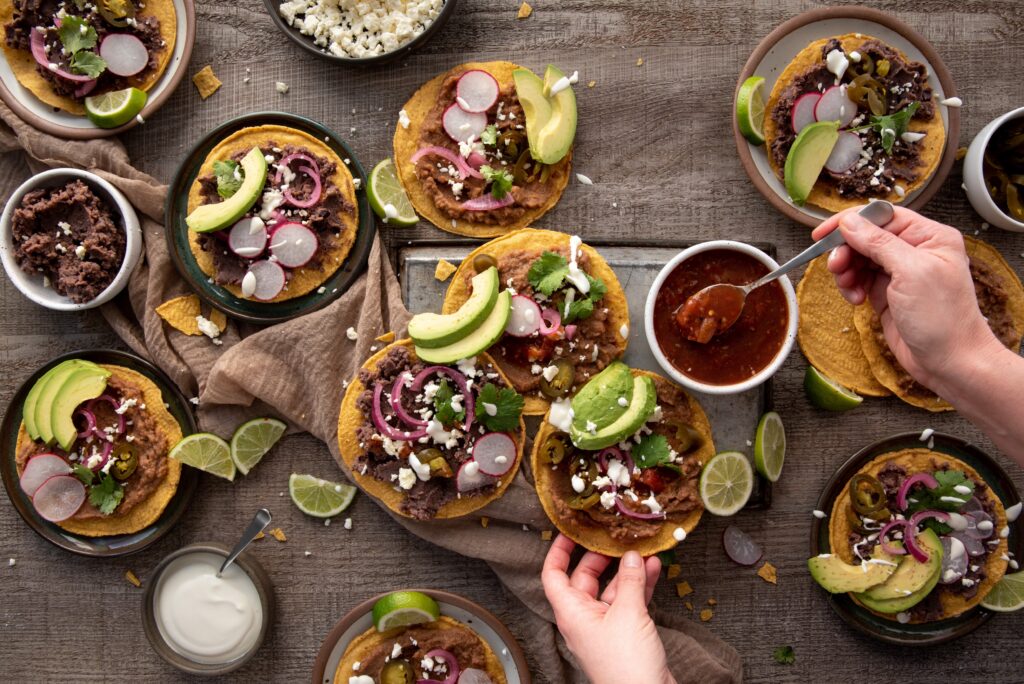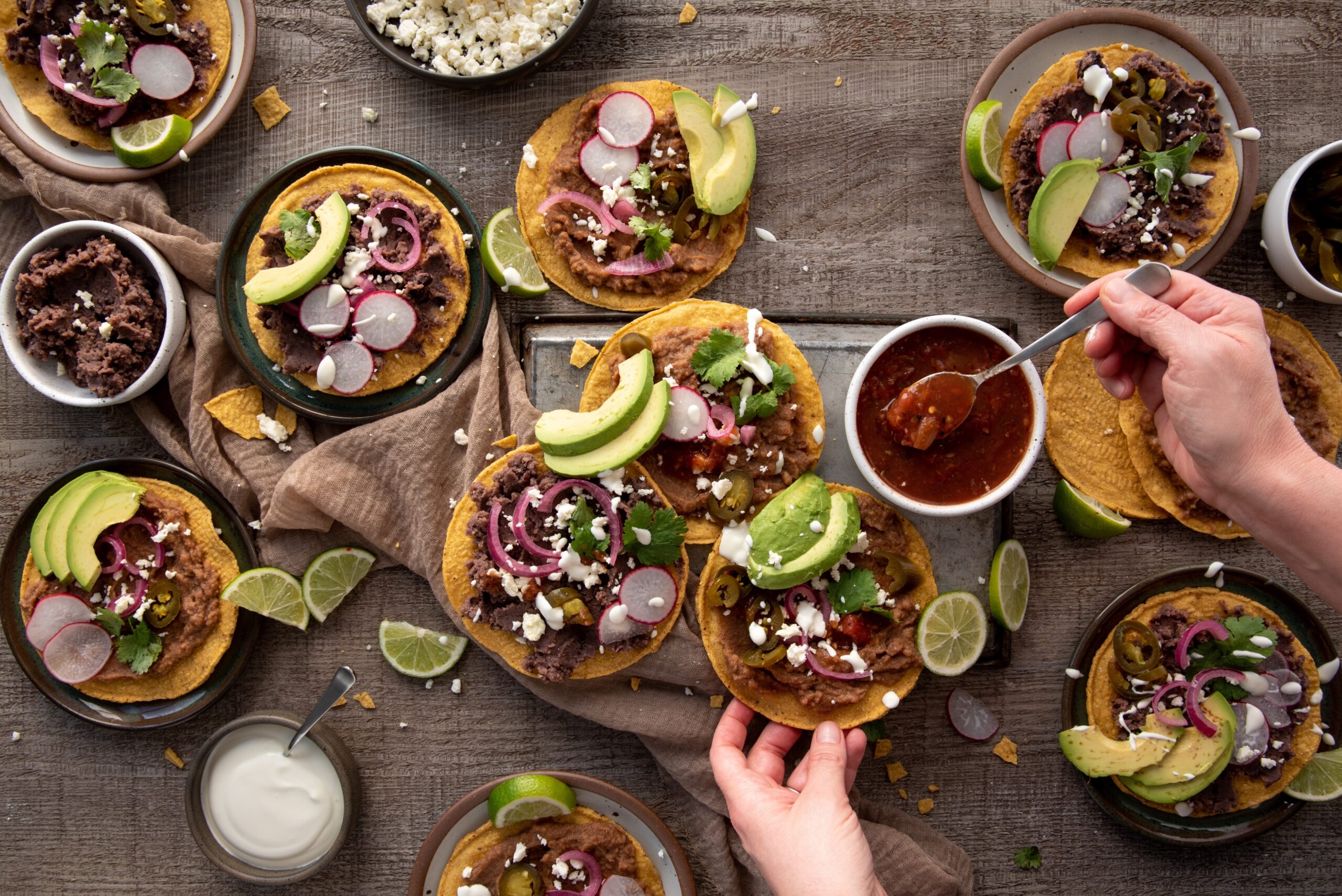Table of Contents

Nourishing Your Mind: The Essential Connection Between Diet and Emotional Well-being
Foods for Emotional Balance and Mental Health: Understanding the intricate link between diet and mental health has opened new avenues for enhancing emotional well-being through nutrition. In this comprehensive guide, we will explore the top foods that promote emotional balance and mental health, and how integrating these into your diet can lead to a happier, more balanced life.
The Connection Between Diet and Mental Health
Emerging research highlights the significant impact that diet has on mental health. What we eat can influence brain function, mood, and even long-term mental health outcomes. Nutrients from food play critical roles in brain structure and function, and dietary patterns can affect cognitive processes and emotions.
Brain-Gut Connection
The brain and the gut are closely linked through the gut-brain axis, a complex communication network involving neural, hormonal, and immunological pathways. The gut microbiome, consisting of trillions of microorganisms, produces neurochemicals that influence brain function and mood. Thus, a healthy gut microbiome, supported by a balanced diet, is crucial for mental well-being.
Neurotransmitters and Nutrients
Certain nutrients are essential for the production and function of neurotransmitters, which are chemicals that transmit signals in the brain. For example, serotonin, often called the “happy hormone,” is synthesized from the amino acid tryptophan, which is found in various foods. Similarly, omega-3 fatty acids play a vital role in brain health and mood regulation.
Top Foods for Emotional Balance and Mental Health
Fatty Fish
Fatty fish such as salmon, mackerel, and sardines are rich in omega-3 fatty acids, particularly EPA and DHA. These essential fats are crucial for brain health and have been shown to reduce symptoms of depression and anxiety.
- How it works: Omega-3s reduce inflammation and support neurotransmitter function, improving mood and cognitive function.
- Incorporation: Aim to eat fatty fish at least twice a week. Add grilled salmon to your salad or enjoy sardines on whole-grain toast.
Leafy Greens
Leafy greens like spinach, kale, and Swiss chard are high in folate, a B-vitamin essential for brain health. Folate deficiency has been linked to depression and cognitive decline.
- How it works: Folate helps in the production of neurotransmitters such as serotonin and dopamine, which are critical for mood regulation.
- Incorporation: Include leafy greens in your diet by adding them to smoothies, salads, or as a side dish.
Nuts and Seeds
Nuts and seeds, including walnuts, almonds, flaxseeds, and chia seeds, are excellent sources of omega-3 fatty acids, antioxidants, and fiber.
- How it works: The combination of omega-3s, antioxidants, and fiber supports brain health, reduces inflammation, and stabilizes blood sugar levels, all of which contribute to better mood and mental clarity.
- Incorporation: Snack on a handful of nuts, sprinkle seeds on your yogurt or salads, or add them to your baking recipes.
Berries
Berries such as blueberries, strawberries, and blackberries are packed with antioxidants, vitamins, and fiber. These fruits are known for their brain-boosting properties.
- How it works: Antioxidants in berries protect the brain from oxidative stress and inflammation, which can affect mood and cognitive function.
- Incorporation: Enjoy berries as a snack, add them to your breakfast cereal or smoothies, or use them as a natural sweetener in desserts.
Fermented Foods
Fermented foods like yogurt, kefir, sauerkraut, kimchi, and kombucha are rich in probiotics, which are beneficial bacteria that support gut health.
- How it works: Probiotics enhance gut health, which in turn influences brain health through the gut-brain axis. A healthy gut microbiome can improve mood and reduce symptoms of anxiety and depression.
- Incorporation: Include a variety of fermented foods in your diet daily. Start with yogurt or kefir for breakfast, add sauerkraut or kimchi to your lunch, and enjoy kombucha as a refreshing drink.
Whole Grains
Whole grains such as oats, quinoa, brown rice, and whole wheat provide essential nutrients and fiber that support overall health, including mental health.
- How it works: Whole grains stabilize blood sugar levels, preventing mood swings and energy crashes. They also promote the production of serotonin, a neurotransmitter that contributes to feelings of well-being.
- Incorporation: Replace refined grains with whole grains in your meals. Choose whole-grain bread, pasta, and cereals, and experiment with different grains like quinoa and barley in salads and soups.
Dark Chocolate
Dark chocolate is rich in antioxidants and compounds that can enhance mood and cognitive function. Choose chocolate with at least 70% cocoa content for maximum benefits.
- How it works: Dark chocolate stimulates the production of endorphins, the brain’s natural feel-good chemicals. It also contains serotonin precursors, which can improve mood.
- Incorporation: Enjoy a small piece of dark chocolate as a treat, add cocoa powder to your smoothies, or use it in baking.
Avocados
Avocados are a source of healthy fats, vitamins, and minerals that are essential for brain health.
- How it works: The monounsaturated fats in avocados support healthy blood flow to the brain, while vitamins like vitamin E provide antioxidant protection.
- Incorporation: Add avocados to salads, spread them on toast, or blend them into smoothies for a creamy texture.
Building a Balanced Diet for Mental Health
While including these specific foods in your diet can boost mental health, it’s essential to maintain an overall balanced diet. Here are some tips to help you build a diet that supports emotional well-being:
Prioritize Whole Foods
Choose whole, unprocessed foods over refined and processed options. Whole foods provide more nutrients and fewer additives that can negatively impact mental health.
- Examples: Fresh fruits and vegetables, whole grains, lean proteins, nuts, and seeds.
Stay Hydrated
Proper hydration is crucial for overall health and cognitive function. Dehydration can lead to irritability and difficulty concentrating.
- Tip: Aim to drink at least 8 glasses of water a day. Include hydrating foods like fruits and vegetables in your diet.
Limit Sugars and Refined Carbs
High sugar intake and refined carbs can cause blood sugar spikes and crashes, leading to mood swings and energy slumps.
- Alternative: Opt for natural sweeteners like honey or maple syrup and choose complex carbohydrates like whole grains and legumes.
Avoid Excessive Caffeine and Alcohol
While moderate caffeine can enhance alertness, excessive consumption can lead to anxiety and sleep disturbances. Similarly, alcohol can disrupt sleep and negatively affect mood.
- Balance: Limit your intake of caffeine and alcohol, and ensure you are consuming them in moderation.
Regular Eating Schedule
Eating regular, balanced meals helps maintain stable blood sugar levels, which can prevent mood swings and energy dips.
- Routine: Aim for three main meals and one to two snacks daily. Include a balance of macronutrients – carbohydrates, proteins, and fats – in each meal.
Practical Tips for Incorporating Mood-Boosting Foods
Making dietary changes can be challenging, but with a few practical tips, you can seamlessly incorporate mood-boosting foods into your daily routine.
Meal Planning and Preparation
Plan your meals ahead of time to ensure you include a variety of mood-boosting foods. Prepare snacks and meals in advance to avoid reaching for less healthy options when you’re short on time.
- Tip: Create a weekly meal plan that includes fatty fish, leafy greens, whole grains, and other nutrient-rich foods. Prepare ingredients in bulk, such as washing and chopping vegetables, to make cooking quicker and easier.
Experiment with Recipes
Explore new recipes that feature mood-boosting ingredients. Trying new dishes can make healthy eating more enjoyable and sustainable.
- Idea: Look for recipes that incorporate a variety of colors and textures, like a quinoa salad with leafy greens, berries, nuts, and a citrus vinaigrette.
Mindful Eating
Pay attention to how different foods make you feel. Mindful eating can help you identify which foods positively or negatively impact your mood and energy levels.
- Practice: Take note of how you feel after meals. Do certain foods make you feel more energized and positive? Incorporate more of those into your diet.
The Role of Supplements
While whole foods should be your primary source of nutrients, supplements can be beneficial in certain situations. Always consult with a healthcare professional before starting any supplement regimen.
Common Supplements for Mental Health
- Omega-3 Fatty Acids: If you don’t eat enough fatty fish, an omega-3 supplement can help ensure you get adequate amounts of these essential fats.
- Probiotics: A probiotic supplement can support gut health, especially if your diet lacks fermented foods.
- Vitamin D: Especially important in regions with limited sunlight, vitamin D supplements can help maintain optimal levels, which are crucial for mood regulation.
Conclusion
The connection between diet and mental health is undeniable. By incorporating foods rich in essential nutrients, you can support emotional balance and improve your mental well-being. From fatty fish and leafy greens to nuts, seeds, and fermented foods, these mood-boosting foods can make a significant difference in how you feel. Remember, a balanced diet, combined with other healthy lifestyle choices, can pave the way for a happier, healthier you.
References
https://www.ncbi.nlm.nih.gov/pmc/articles/PMC3636120
https://www.ncbi.nlm.nih.gov/pmc/articles/PMC2805706
https://www.mdpi.com/2072-6643/14/19/4137
https://www.ncbi.nlm.nih.gov/pmc/articles/PMC4167107
https://www.nature.com/articles/s41598-023-49500-8
https://www.ncbi.nlm.nih.gov/pmc/articles/PMC9441951
https://www.ncbi.nlm.nih.gov/pmc/articles/PMC10746024

